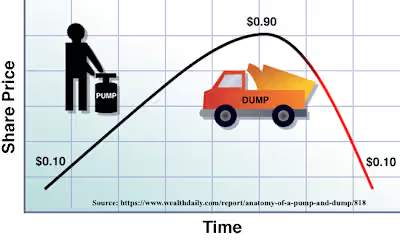The Case for Being Stock Market and Financial Savvy

Following the stock market can be a fascinating way to monitor and review trends in society, business, and politics. Opinions and sentiments mixed with good and bad information are represented in the market and are highly influential in its operations. It also signifies the behavior trends that dominate a marketplace of endless disciplines. This could range throughout the political, social, and economic spectrum in addition to the business-is-business crowd. The business side could not care less about the latter issues as long as the market produces favorable results for them. In the end it boils down to the individual to decide the best approach to managing risk and potential opportunities that correlate with them. The mindset needed for this can easily be used in normal everyday practice. However this does not always work in reality due to human emotions either shining light on the realities of life or blinding them to the point of cluelessness.
In video games we get several “do-overs” but in real life when everything is at stake, we’re lucky to get a second chance in whatever it is that we screwed up. Second chances are somewhat expected in this developed world of ours. But are they really appreciated to the extent that they literally go against the laws of nature? Perhaps, but from my personal experiences it is not always the case. They may still be a part of everyday life in the developed world but in other areas of the globe it is still considered being a rare and valuable commodity. Depending on the circumstances it can also be rare and valuable in areas where second chances are automatically expected as well.
However, trading and investing in the stock market is a firm example where second chances are mostly rare and non-existent. Although one could easily make the argument that any second chance opportunities made after stock market blunders are given primarily to elite power players who heavily influence the trends themselves. However, this isn’t always the case. The 2008-2009 recession showed that some major firms got bailed out while others were completely dissolved. This ultimately reshaped and redesigned the makeup and operability of the marketplace. The changes from this era also heavily altered the perceptions and realities of the stock market and everything business-oriented in general. Blind faith and confidence in the system without actually understanding it, left millions of people dismayed, disillusioned, and disgusted with the process.
It is now eight to nine years since the great recession occurred. The market obviously recovered and is significantly higher in growth and earnings. However, the age-old belief that a recession occurs every 8-10 years is gaining traction in the media and that alone could aid in creating a new bear market. At this point the market continues to go up despite there being heavy concern regarding the current political, economic, and global security climate. In addition another recurring trend seems to be the undervaluing of well-managed companies and the increased potential of mergers and acquisitions in this market environment. The tech industry alone, via microchips, semiconductors, and artificial intelligence, are experiencing a potential balance of power shift in the competitive advantage of several major tech companies.
Indicators like the ones mentioned in the previous paragraph are crucial to understanding and identifying potential risks, threats, and opportunities in the stock market. This is why it is especially important to learn how to study market-industry trends and the underlying value of research reports, company information, and media coverage. Whether you are a novice or an expert, this is a skill that requires the interested person to become a lifelong student of this hobby/field. Taking an interest in the stock market can be exciting and requires one to learn the fundamentals and several mindsets involved. It is important to note that fundamentals are just the building blocks that lead to further growth and expansion and not just the end result. Having a “student of the game” mentality can be especially beneficial for those of you that are interested in constantly learning and expanding your skillset in everything stock market and financial related.
There is an abundant amount of information and resources that people can use to become more knowledgeable about the stock market. This can range from a wide assortment of resources like trading simulations on the web to online presentations and courses via social media. Traditional print and digital media resources are also abundant and tailored for all types of skillsets, scenarios, and trends. Overall the Internet has made it a lot easier to learn about the stock market. It has also made it more complicated and scary as well. After all we live in the information age where good and bad information thrive on the Internet in an old Wild West fashion. It can be overwhelming and intimidating to learn the material and make the big decision to either create or update one’s financial portfolio.
However, it is important to note that many of us will most likely lead long, healthy, and productive lives. Anything stock market and financial related will constantly be recurring themes. So it is in our advantage to take the initiative to learn as much as possible about it in order improve our financial savviness. We have the option and right to both learn and to not learn about anything stock market and financial related. However it is a responsibility we owe to ourselves as it enables us to be in greater control of our destinies, for richer or for poorer. Savvy or not savvy it is ultimately our choice.
Subscribe To My Blog!
Like this project
Posted Aug 22, 2024
Blog article encouraging better understanding of the stock market, finance, and wealth building.
Likes
0
Views
9





